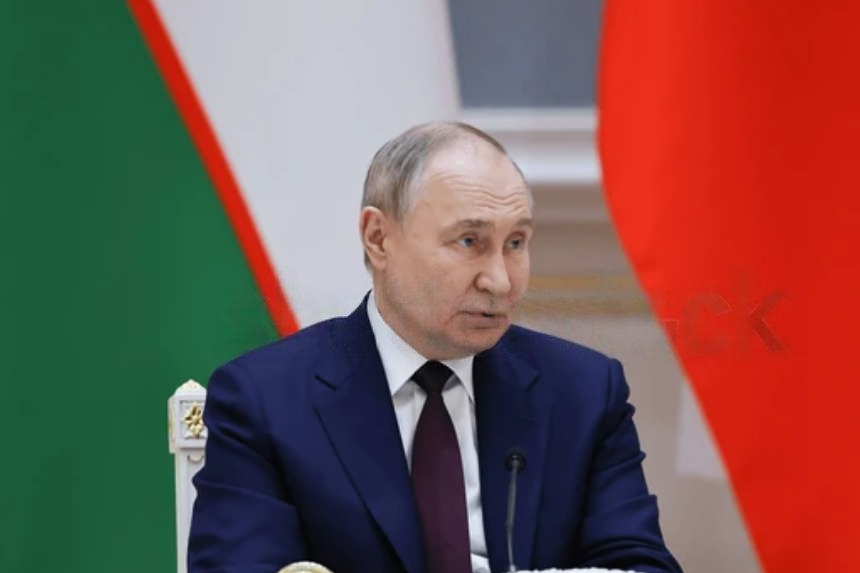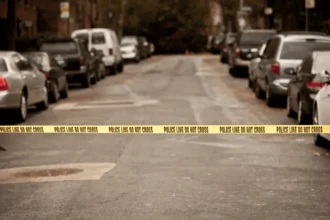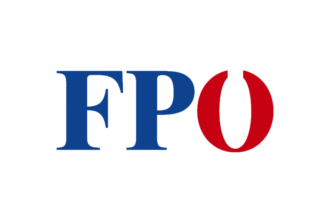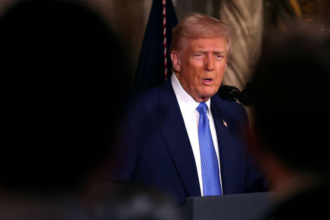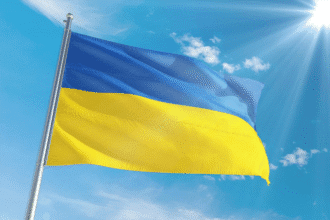Russia may consider nuclear retaliation for non-nuclear attacks backed by atomic states, signaling a potential escalation in the conflict with Ukraine.
- What Is Putin's Threat of a "Joint Attack"?
- Why Is Ukraine Pushing for Long-Range Missiles?
- How Is Moscow Responding to Nuclear Sabre-Rattling?
- How Has Ukraine Responded to Putin's Warning?
- What Is the Role of Deterrence Policy and Tactical Nuclear Weapons?
- Is Russia's Nuclear Doctrine Changing?
- How Is the International Community Reacting?
- Is the Battlefield Shifting?
What Is Putin's Threat of a "Joint Attack"?
On Wednesday night, Russian President Vladimir Putin gave a sobering warning implying that his administration may change the terms under which it would employ nuclear weapons. Based on his comments, Russia would view an assault by a non-nuclear state backed by a nuclear-armed partner as a “joint attack” and might thus react even with nuclear weapons.
Pete Hegseth Under Fire: Allegations of War Crimes and Leaks
Emphasizing this, Putin said, “It is proposed that aggression against Russia by any non-nuclear state, but with the participation or support of a nuclear state, be considered as their joint attack on the Russian Federation.”
This proclamation comes while the non-nuclear state Ukraine keeps getting military help from the United States and other nuclear-armed countries. The comment might be taken as a direct reaction to Ukraine’s continuous military operations and the backing it is getting from Western allies such as the United States, the United Kingdom, and other NATO members.
Why Is Ukraine Pushing for Long-Range Missiles?
Putin’s remarks line up with a turning point in Ukraine’s military approach. Long-range Western missiles against Russian military targets have been sought for permission under the direction of Ukrainian President Volodymyr Zelensky. Ukraine claims that aiming military sites inside Russia is essential to counter missile assaults on Ukrainian land and has already advanced into Russian territory this year.
Zelensky is supposed to meet U.S. President Joe Biden in Washington on a visit to the country. The agenda of the bilateral talks would probably be subordinated to Kyiv’s need for long-range weapons.
How Is Moscow Responding to Nuclear Sabre-Rattling?
Although the Kremlin’s growing rhetoric on nuclear weapons is not new, Putin’s most recent remarks point to a change in policy direction. Following meetings with Russia’s Security Council, the president disclosed a strategy for broadening Russia’s nuclear policy. Even in scenarios of conventional strikes on Moscow, he suggested that the new strategy would “clearly set the conditions for Russia to transition to using nuclear weapons.”
Such an incident would call for careful thought of nuclear reprisal, claims Putin. Russia would see a “massive launch of missiles, aircraft, and drones” aiming at Russian territory as a serious threat that would call for a nuclear reaction, he said. The leader presented the atomic armament of his nation as “the most important guarantee of security of our state and its citizens.”
How Has Ukraine Responded to Putin's Warning?
Reacting to Putin’s comments, Andriy Yermak, chief of staff to Ukrainian President Zelensky, discounted Russia’s threats as little more than desperate measures. “Russia no longer has anything else but nuclear blackmail to intimidate the world,” Yermak said, suggesting Kyiv sees this language as a ploy to discourage Western assistance.
Aimed at terrifying Ukraine’s partners and deterring them from providing more modern armaments, Zelensky’s administration has already characterized Putin’s nuclear posturing as “nuclear saber-rattling.”
What Is the Role of Deterrence Policy and Tactical Nuclear Weapons?
Following a strategy of deterrence, in which the use of nuclear weapons is avoided to avert mutually assured destruction (MAD), nuclear-armed governments have mainly stayed true since the conclusion of World War Two. This equilibrium is what has prevented major nuclear war. However, notably in his allusion to tactical nuclear weapons, Putin’s latest comments might indicate a divergence from this philosophy.
Unlike the catastrophic nuclear bombs used in Hiroshima and Nagasaki, tactical nuclear weapons are smaller warheads meant for more targeted destruction with little radioactive fallout. Russia has a large arsenal of these weapons, and in June, Putin cautioned European nations of their vulnerability. Though the United States brings hers over, Putin said, “Russia has many more [tactical nuclear weapons] than there are on the European continent.”
He said, “Europe lacks a sophisticated [early warning system]. They are so rather helpless in this way. These remarks underlined Russia’s conviction that Europe is not ready for any possible nuclear escalation.
Is Russia's Nuclear Doctrine Changing?
Putin’s references to a revised nuclear doctrine are not surprising. He made hints in past months that Russia would change the rules controlling when and how it would use nuclear weapons. These signals seemed to confirm themselves officially on Wednesday.
The Russian leader claims that any significant military threat to Russian sovereignty—including conventional missile strikes—could excuse the deployment of nuclear force. Such a posture would indicate a significant escalation in the conflict, which has already seen conventional fighting extending into Russian territory.
Putin’s reaffirmation of Russia’s nuclear capabilities supports the Kremlin’s stance that the defense policy of the nation depends mostly on atomic weapons. “Our nuclear arms are the most important guarantee of the security of our state and its citizens,” he said forcefully.
How Is the International Community Reacting?
Russia’s more assertive posture on nuclear weapons has caused rising worry among the world community. Critical friend of Russia, China, has reportedly urged moderation; Chinese President Xi Jinping cautioned Putin against using nuclear weapons. This captures Beijing’s view that atomic confrontation may negatively affect world stability.
Putin’s veiled threats have sent off fears in Europe and the United States, which have often provided Ukraine with defense backing. Any notable increase worries analysts about possibly destabilizing the area and perhaps bringing nuclear powers into a more general confrontation.
Is the Battlefield Shifting?
Russia’s changing nuclear stance adds a frightening new aspect to the conflict as the battle in Ukraine moves into another pivotal stage. Supported by Western weapons, Kyiv’s military successes have shaken Moscow and made Putin consider changing Russia’s nuclear policy.
Moscow is gearing itself to reply with the most severe of threats, while Ukraine advocates long-range missile capability to strike Russian sites. Even with a conventional strike backed by nuclear allies, the likelihood of atomic reprisals may force the planet into a dangerous brink.
The following weeks might be crucial since Russia is ready to go to any extent, even nuclear ones, to maintain its sovereignty. At the same time, Ukraine’s government seeks Western support for more military expansion. The world watches with anxiety as Putin’s warnings become more blatant, praying nuclear warfare stays simply a threat and never a reality.


